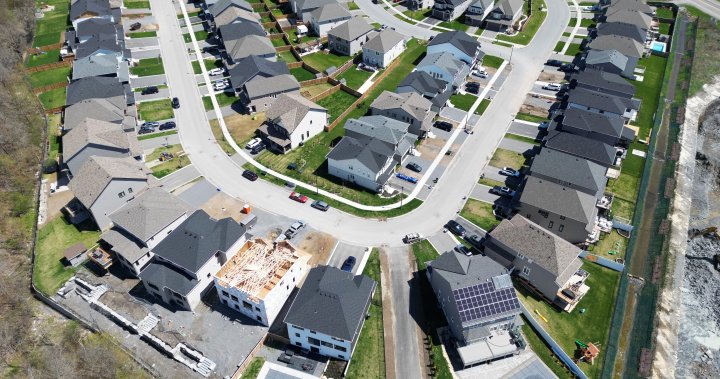A growing number of Canadians appear to feel immigration to Canada should be limited, spurred by worry about the cost-of-living crisis, according to a new survey from the Environics Institute.
The survey suggests that 44 per cent of Canadians agree with the statement that “overall, there’s too much immigration to Canada” compared to 51 per cent that disagree. It comes as Immigration Minister Marc Miller is set for a Tuesday announcement billed as an unveiling of “the Strategic Immigration Review report and the plan to improve Canada’s immigration system.”
“It’s the biggest such change in this measure we’ve seen in four decades,” said Keith Neuman, a senior associate with Environics.
The current immigration targets of approximately 500,000 newcomers annually are set to expire in 2025. When asked whether those targets could dip, Miller said that is “a work in progress.”
The Environics survey suggested the biggest increases of those saying there is too much immigration was among first generation Canadians, men and top income earners.
With regard to political preference, 64 per cent of Conservative respondents agreed there is too much immigration, compared to 29 per cent for Liberals and 24 per cent among NDP respondents.
The survey suggested the number of people saying Canada is welcoming too many immigrants is up in almost every identifiable group and region across the country. The change was most notable in Ontario and B.C. where agreement that there’s too much immigration outweighs disagreement.
This view of immigration is a significant shift from the results last year, where the same question had a record high of 69 per cent of people disagreeing with the statement and only 27 per cent saying there’s too much immigration.
Neuman says people who said in past surveys that too many immigrants are coming to Canada were more worried about who they were and where they were coming from.
Now, though, Neuman says the concern appears to stem from Canada’s capacity to welcome newcomers.
“So, what we’ve seen over the past year, there’s no shift to anti-immigrant sentiment. I think that’s very important. It’s really a question about the volume and how many can we manage,” he said.
“We probed a bit deeper. We found that the primary concern is about the potential impact on housing,” Neuman added.
“So, housing in this research clearly is among the most top-of-mind important issues, much more than a year ago, even though many of these housing circumstances were the same. It’s now much more of a top-of-mind issue.”
The results echo similar findings from recent polling done by Ipsos for Global News.
Earlier in October, Ipsos polling suggested that two-thirds of Canadians who do not own a home say they are giving up on the dream, and found 71 per cent of respondents live in communities where they say a housing crisis exists.
That same poll found 73 per cent also said Canada’s immigration targets should be reduced until the housing shortage eases, while 68 per cent said there should be a cap on international students while the crisis is addressed.

However, Miller told Global News on Friday that the government sees immigration as a key factor in addressing the housing crisis, through bringing in more skilled workers to build homes.
“I’ve seen numbers, and I have no reason to doubt them, in and around 100,000 skilled workers we need to build the houses necessary to alleviate the housing crunch, which has not really been a product of immigration,” Miller said.

The average price for a detached home in Ontario in September was $896,500 according to the Ontario Real Estate Association.
The B.C. Real Estate Association reported an average home price of $966,500 last month.
Among respondents who agreed there was too much immigration, the leading cause for this belief is that immigrants drive up housing prices, at 38 per cent.
In 2022, 15 per cent of respondents who agreed with the statement.
However, the survey found a “strong majority” of respondents believe immigration is good for the economy but notes that the public consensus has weakened over the past year.
While more Canadians appear to be linking the housing crunch to an increasing immigrant population, Miller argues that the current situation is driven by years of poor government planning at all levels.
“It’s a failure of planning, really. And what we’re seeing from Canadians in particular is demands on the federal government and their provincial counterparts, municipal counterparts, to plan better for people that are here,” Miller said.
The survey is based on both landline and cellphone interviews with 2,002 people between September 4 and 17. Environics says this survey is accurate within plus or minus 2.2 per cent, 19 times out of 20.
With files from Global News’ Touria Izri and Uday Rana.
© 2023 Global News, a division of Corus Entertainment Inc.




